What Crowds? Yunnan Is the Secret China Has Been Keeping
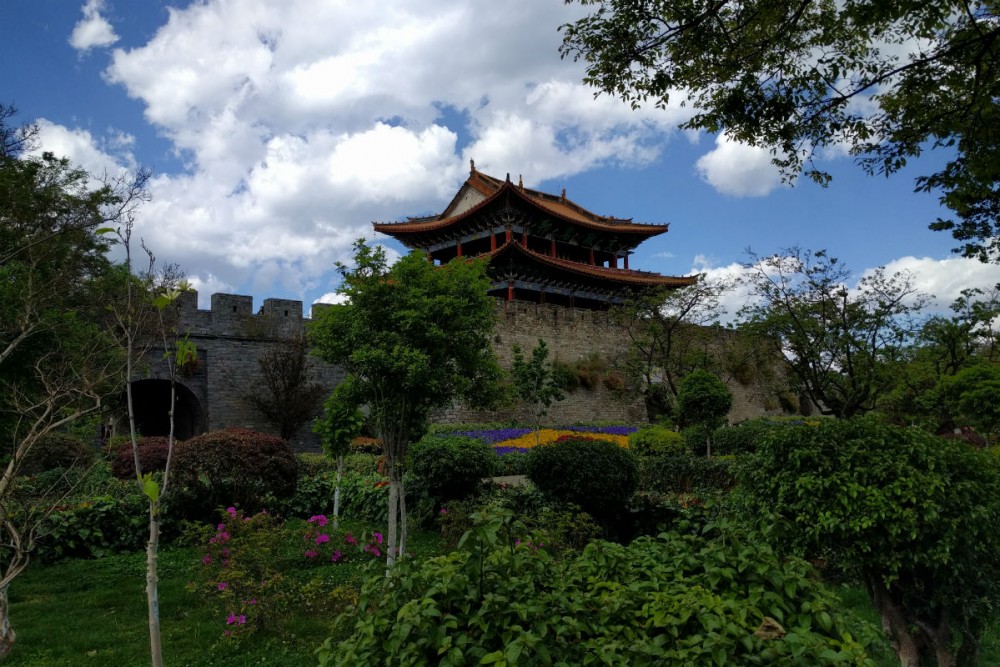 The city wall and gate of Old Dali, Yunnan Province. Photo: Billie Cohen
The city wall and gate of Old Dali, Yunnan Province. Photo: Billie Cohen We’ve all seen pictures of Shanghai, Hong Kong, and Beijing. The flashy skyline of Shanghai, the crowds and traffic of Beijing, the touristy waterfront light show in Hong Kong.
Those modern cities are what a lot of people think of when they think “China”—and unfortunately, that thought is usually followed by the specter of crowds, noise, and pollution. But there’s a very different world just beyond those buzzing cities, and it might change the way you think about traveling in China.
In Yunnan Province you can experience an alternate version of the most populous country in the world—a version where nature rules over crowds, the food is farm-to-table fresh, the air is clear blue and clean, and the people invite you into their homes instead of elbowing you out of their way.
With the help of Mei Zhang, one of our Trusted Travel Experts for China, I had the chance to dive into Yunnan Province, specifically the region of Dali where Mei grew up, to experience a very different side of China. Here are ten reasons why it should be included on any itinerary to the country.
1. You will learn that Yunnan’s “rural” is different from American “rural.”
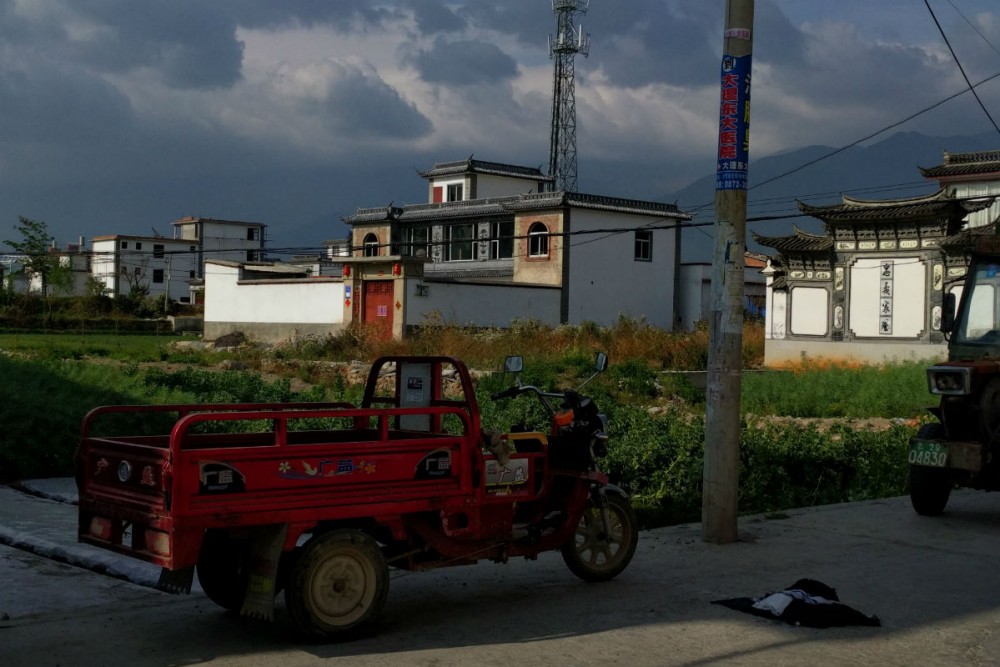
Farmland is right up against people’s homes in Dali, Yunnan Province, China. Photo: Billie Cohen
In the U.S., farmland is a wide stretching expanse of planted ground. If people live on it at all, they live far apart. But in China, people live in rows of houses along what looks, for all intents and purposes, like a suburban street. And directly across from their house is a small plot of land, which they farm. They might have other family plots around the area too.
2. You will find the natural beauty astounding.
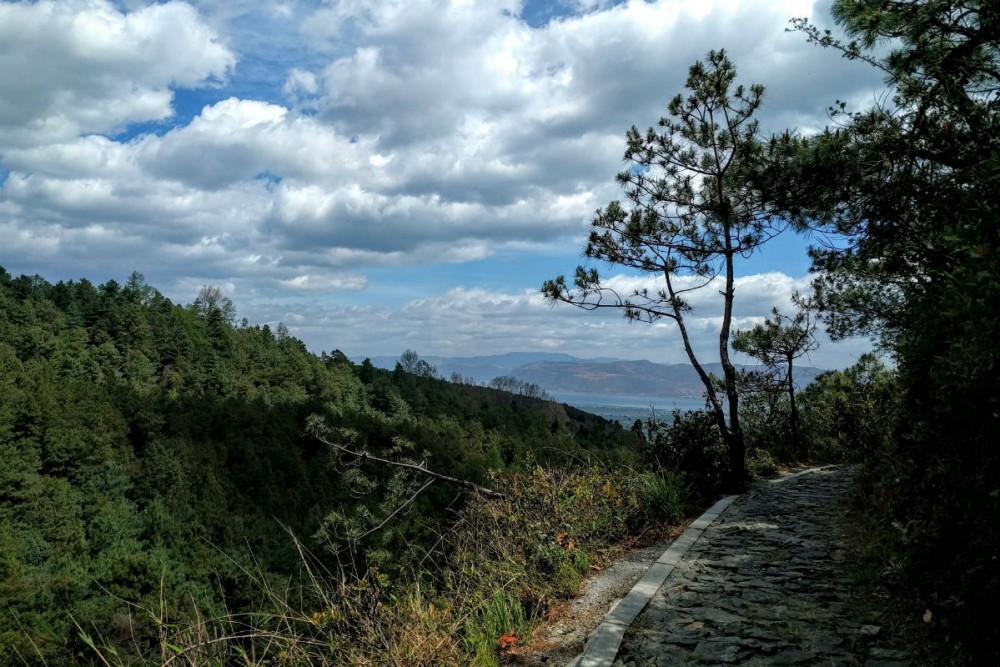
Hiking Cangshan mountain, overlooking Dali. Photo: Billie Cohen
A short drive from the hotel took us to the base of Cangshan mountain range, where we hiked a rock-paved trail up past temples, tucked-away altars, waterfalls, a tea plantation, beautiful vista points, and even a few historic family grave sites, which led to fascinating conversations about cultural traditions and beliefs.
3. You will meet people who surprise you.
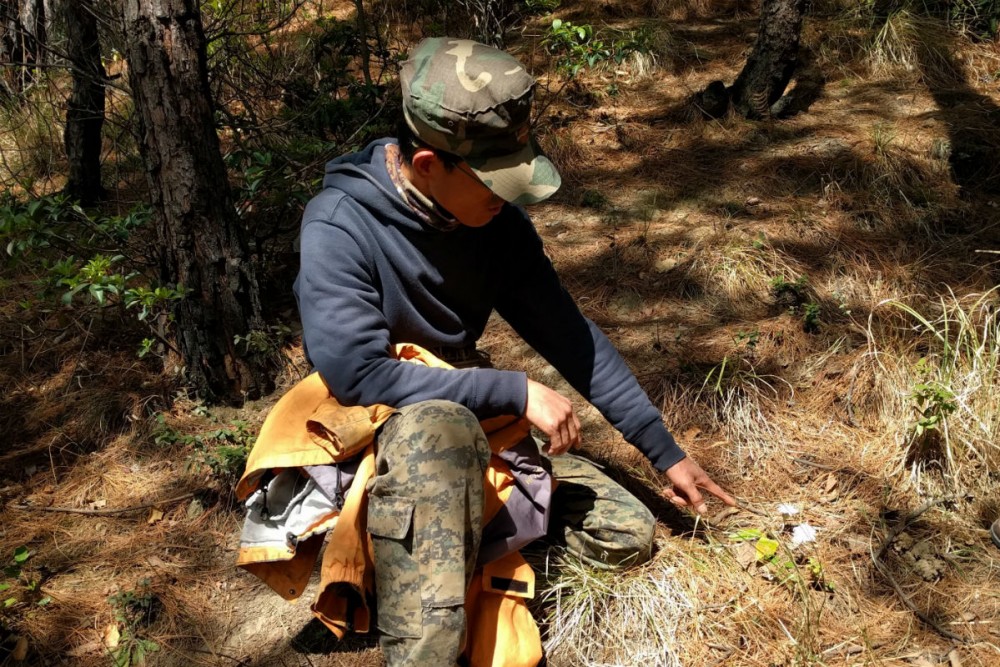
On our hike, Mr. Tian pointed out flowers, leaves, and plants commonly used in local cooking and medicines. Photo: Billie Cohen
The hike was led by botanist Mr. Tian, a former hotel-uniform designer who’d been successful in Beijing but had retired and moved to the countryside to teach environmental awareness to kids. As we walked, he pointed out flowers and leaves used in traditional cooking and medicines, and our guide Frank (a passionate flower-gardener himself) added his own personal stories eating those foods in his childhood home. Even though Mr. Tian didn’t speak any English, there was rarely a lull in the conversation—and we had plenty of laughs too. My favorite part: Despite some shyness on this particular topic of conversation, I discovered that both Frank and Mr. Tian had hidden talents. Frank has a beautiful voice and we convinced him to sing us a folk song as we walked through the woods. That loosened up Mr. Tian, who later revealed that he is a talented artist who draws Audubon-like illustrations of flora and fauna. He showed us some artwork he had on his phone and let drop that he was holding his first exhibition in a few weeks. Sadly, I was going to be gone by then.
4. You will eat well—and healthily.
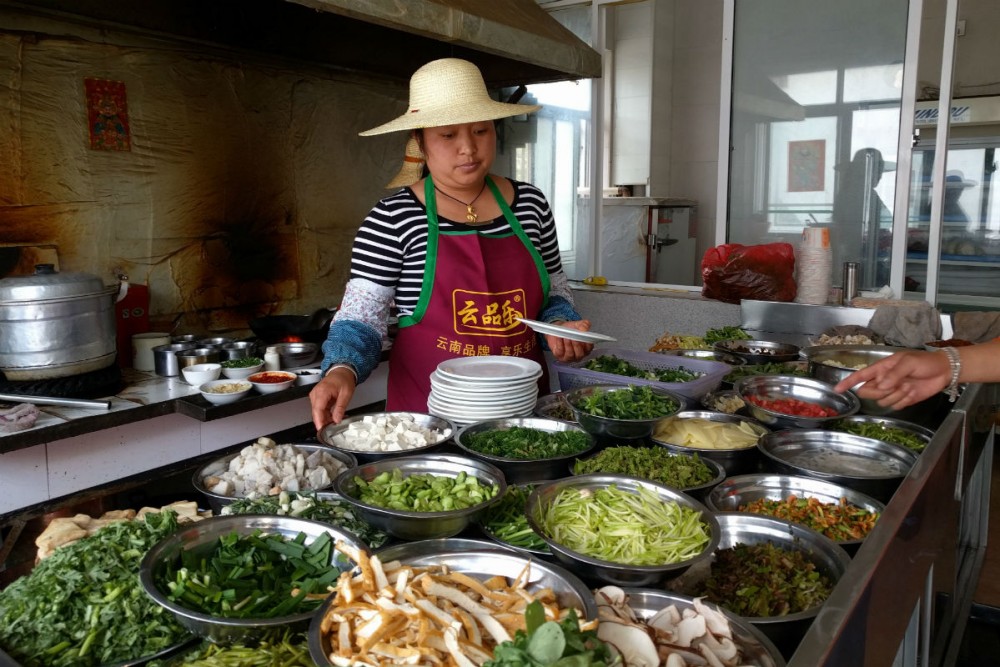
The ingredients at a local lunch spot were so fresh because they were farmed nearby. Photo: Billie Cohen
It is a myth that all Chinese food is greasy and oily. In Yunnan, where the food is truly grown locally and served farm-to-table (you’ll pass farms wherever you go), everything I ate was fresh and healthy. Mixed vegetables and meats are often simply sautéed with a little bit of oil (rapeseed is what’s most commonly used) and a lot of delicious spices and flavors. As a vegetarian, I was able to eat well and deliciously—lots of tofu, lots of greens, and several new vegetables to try.
5. You’ll eat like a local.
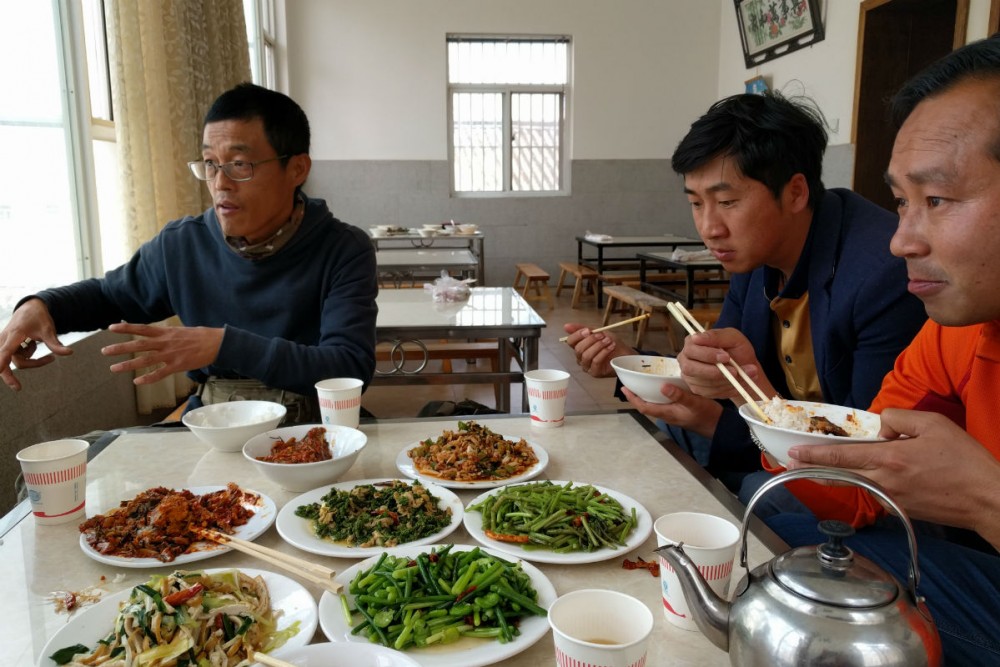
Eating like a local in Dali, Yunnan Province, China. Photo: Billie Cohen
After our hike up Cangshan mountain, and the bonding it encouraged among our little group, we decided to change plans and eat at a local village spot recommended by Mr. Tian, where we found a crowd of regular folks digging into their daily lunches. At the counter, we picked out our main ingredients (a variety of vegetables and meats) and then headed upstairs to dine like locals, on low benches at a low table, sharing the dishes family-style. Pro tip: The typical way of eating is family-style, right down to the practice of allowing everyone to serve themselves from each platter with their personal chopsticks. If that’s going to bother you, it’s absolutely fine to ask for a serving spoon—no one will mind. (Though my new friends were impressed that I didn’t.)
6. You will meet artisan craftsmen who don’t live in Brooklyn or have beards.
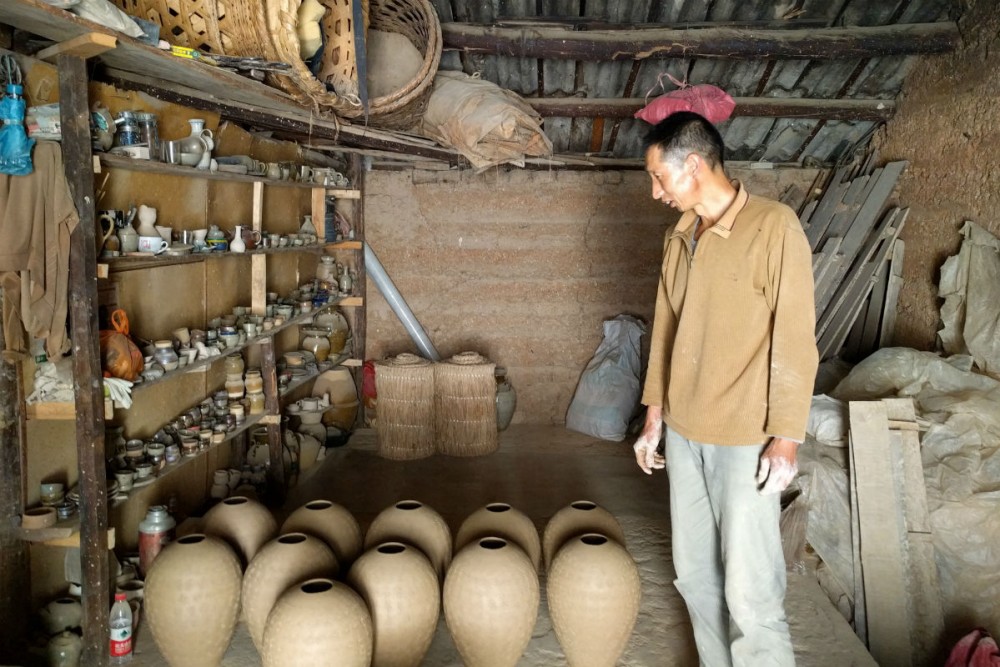
Mr. Yung is a third-generation potter living and working in Dali, Yunnan Province. Photo: Billie Cohen
One of the many interesting artisans that Mei knows in Yunnan is a local potter who lives in the hills above a tiny village. After a ten-minute easy walk through winding streets, we reached Mr. Yung’s pottery compound, a few earthen shacks arranged next to a long dirt ridge that reached quite far down the hill and turned out to be, as he called it, the Dragon Kiln. That kiln could fire 1,000 vases at once. Mr. Yung’s work is that in-demand.
Mr. Yung is a third-generation potter and although his rustic studio didn’t look like much from the outside, it turned out to be a small museum when I walked inside—packed with beautifully shaped vases and bowls, some in progress and some finished. Make sure you ask for a lesson at the wheel. Mr. Yung (who doesn’t speak any English) lit up when I asked and we shared quite a laugh when my bowl turned out lopsided. If you have enough time in Dali, you can even take your creation home.
7. You can prepare and eat lunch with a Bai family.
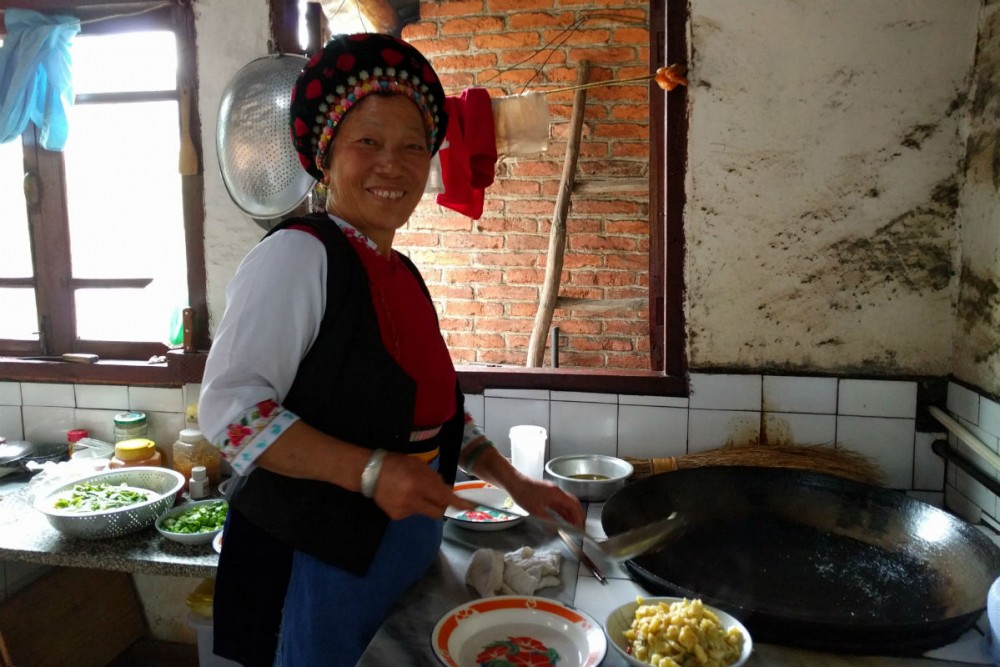
Yang Mama prepared lunch with us in her own kitchen. Photo: Billie Cohen
Mei and our local guide, Frank (who also grew up in Dali and nearby Kunming), arranged for us to have lunch with a local Bai family. There are 56 ethnic groups in China; the Han people make up about 92% and the rest are small pockets of minority groups, including the Bai people, who number about 180,000. They live primarily in the Yunnan province, and you can see them going about their business in various markets that your guide will lead you through. In one special afternoon, after shopping for greens in the local Dali market, we took them to a Bai family’s home where Yang Mama (pictured) cooked them up in a giant wok heated by bricks, along with other regional dishes. Ask to help, and you’ll get the chance to try out the wok. After lunch, Yang Mama prepares three different kinds of teas, each with a symbolic meaning. And yes, the Bai women wear their colorful costumes all the time—not just for the tourists. However, we did learn from Frank that they’ve modernized a little bit. Look for the braided lanyard pinned near their right shoulder and hidden in a chest pocket; it’s usually connected to glasses or a mobile phone.
8. You’ll get to see handicrafts up close and learn how they’re made.
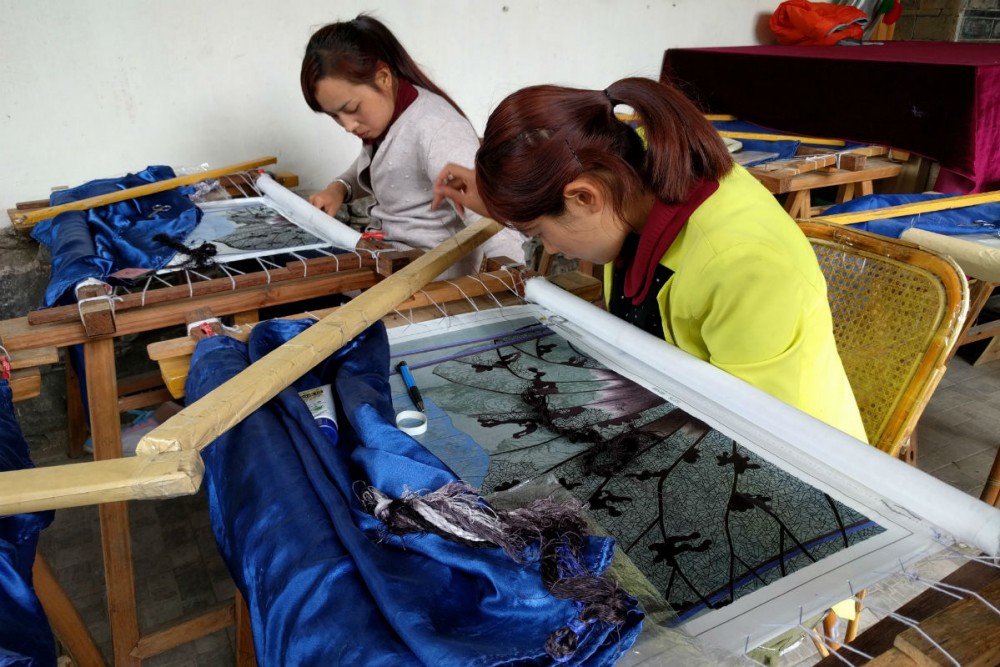
Visiting a small embroidery school in Dali, Yunnan Province, China. Photo: Billie Cohen
The Chinese government has funded some traditional handicraft schools to help keep those arts alive. With Frank, we got to visit two: an embroidery school and a batik school. Though we did run into another tour group at the silk embroidery school, my experience still felt separate: The big group did not get a private meeting with the woman who ran the small school (of only a dozen students), nor a guided tour through the gallery—and no matter where we went, there was never any pressure to buy anything. (Check out the baskets in the picture: They’re full of silk worm eggs!)
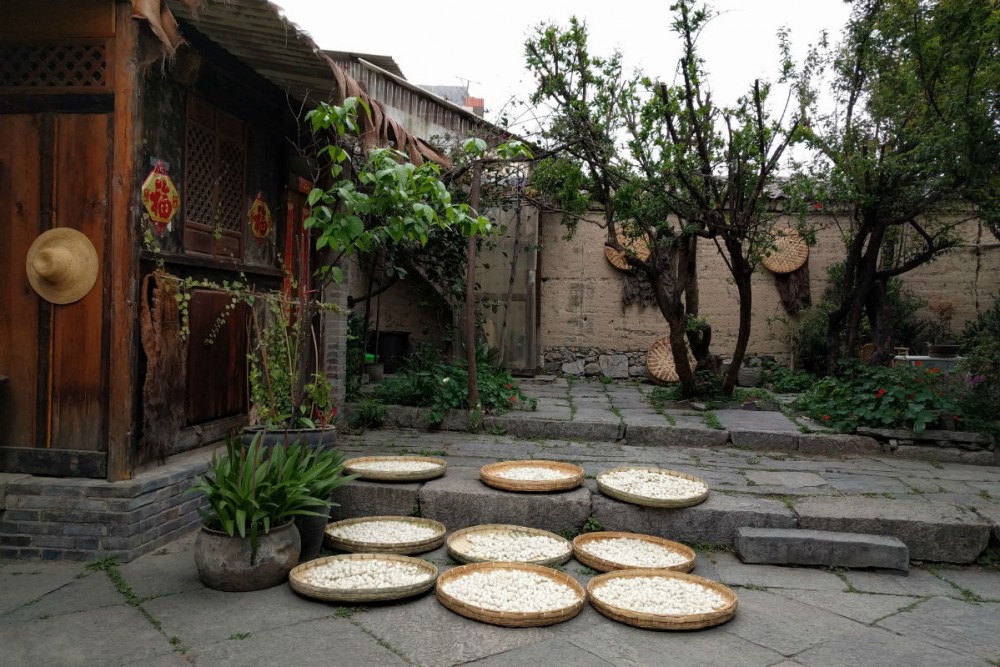
The baskets are filled with silk worm eggs! Each produced miles of silk that is dyed and used for embroidery by the students at this school. Photo: Billie Cohen
9. You’ll learn about local architecture from the inside out.
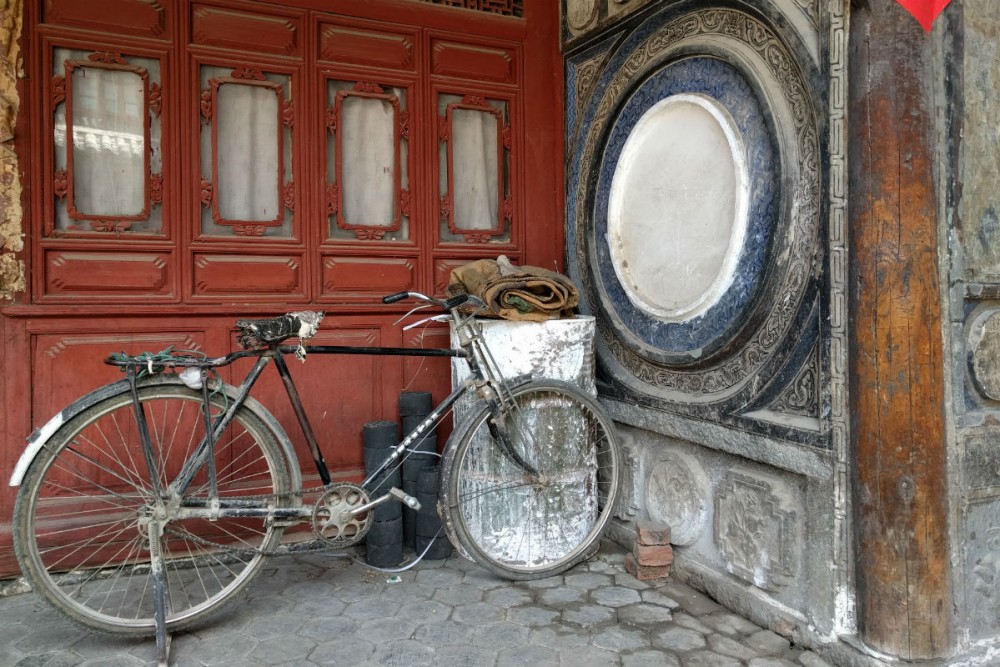
Inside a local’s home in Old Dali, Yunnan Province. Photo: Billie Cohen
Thanks to Frank’s and Mei’s deep roots in Dali and the time they’ve spent building relationships with interesting people, we were able to stop into a few local homes to see what they looked like, say hello, and even glimpse some behind-the-scenes real-life moments (like a pair of tween boys watching TV while their mom did laundry, or a wife cooking dinner as the husband led us around). This was so much better than having architectural details pointed out from the street as we walked by, as I saw other tourists doing.
10. You’ll have WOW experiences that weren’t even scheduled on your itinerary.
Undoubtedly the most “wow” moments of WildChina’s Yunnan itinerary were the ones that happened organically: The teachers at the handicraft schools who dropped surprising factoids in response to my many questions, the fascinating botanist Mr. Tian, the Bai woman who cracked up when I threw back a shot of spicy tea way too fast, the potter who laughed with me when I failed miserably at the potter’s wheel, and, most of all, our guide Frank.
Frank certainly didn’t have to tell us stories about his adorable young daughters (named after flowers) or show us pictures of all the plants he and his wife have stuffed into their home, or sing two folk songs for us (we had to beg for a few hours to make that happen). He was just a nice guy, with the unique local insight that comes from living in a place your whole life and wanting to find ways to help visitors see it the way he sees it, with all its wonders.
Those seemingly random human moments are the ones you end up talking about most when you get home. Ironically, though, they don’t really happen entirely by chance, do they? They happen because of the connections you make when doors are opened for you, and because someone with exceptional local knowledge put all the people and pieces in the right place and then stepped back to let the magic happen. That’s what Mei can do. Without all those people, Yunnan still would’ve been amazing and worth a stop on any China trip, especially as a fascinating juxtaposition to the country’s bustling cities, but the region and culture wouldn’t have opened up to me the way they did.
Be a smarter traveler: Use Wendy’s WOW List to plan your next trip. You can also follow her on Facebook and Twitter @wendyperrin, and sign up for her weekly newsletter to stay in the know.
*Disclosure: WildChina provided me with a ten-day trip through China, mostly free of charge (we split the cost of domestic China airfare, and United provided the long-haul flights). In keeping with WendyPerrin.com standard practice, coverage was not guaranteed and remains at our editorial discretion. Our goal in taking sponsored trips from travel specialists is to evaluate the services we recommend for our readers and ensure that they remain up to Wendy’s standards. You can read the signed agreement between WendyPerrin.com and WildChina here.

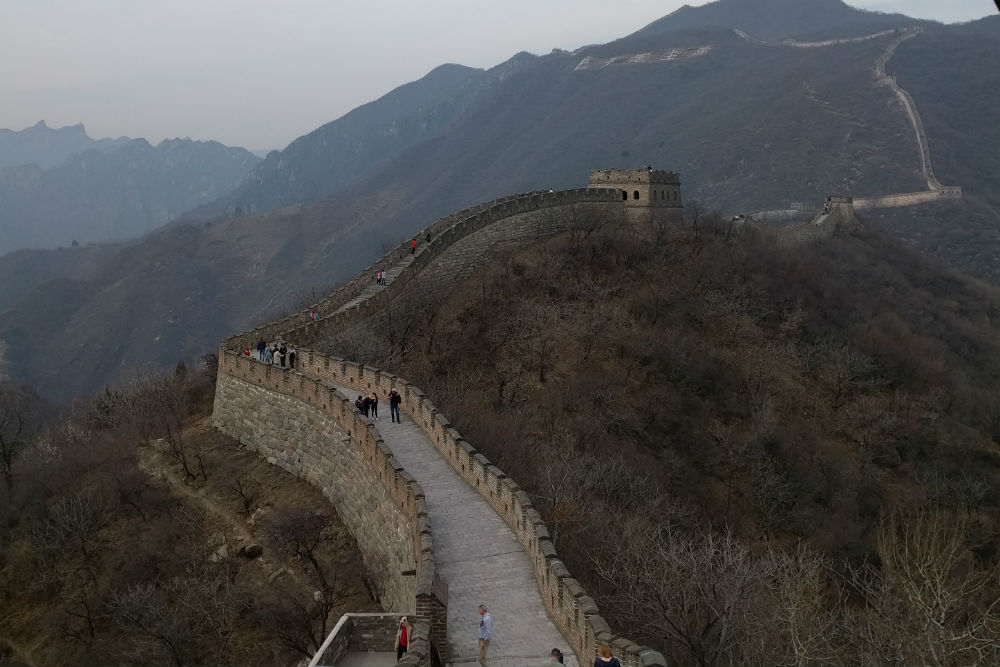
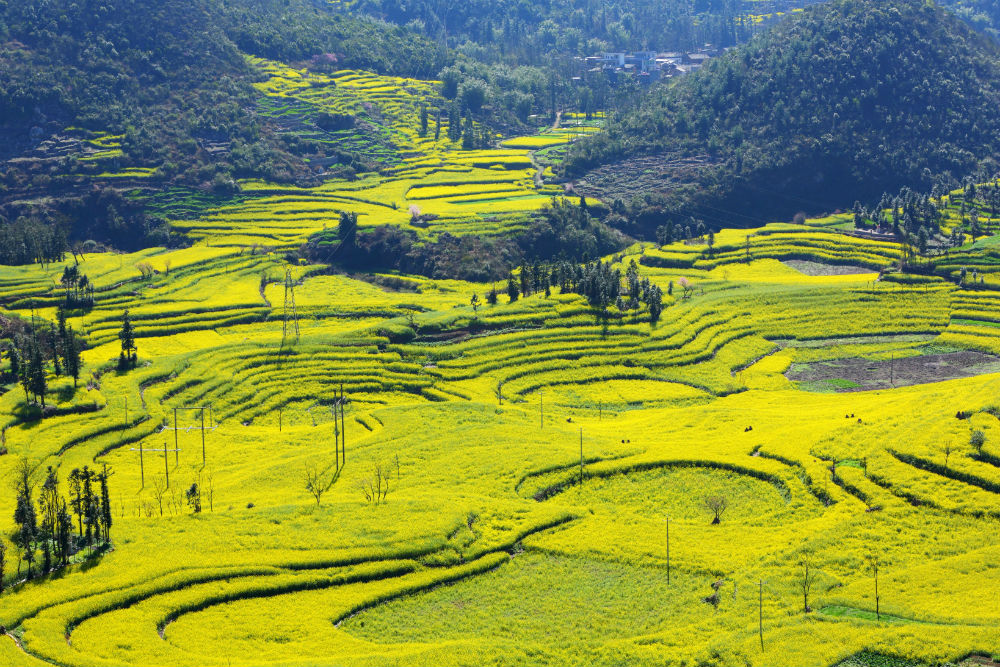







We were in the Yunnan this past November – what a fascinating and beautiful place. I couldn’t help but think of all of the people living in other parts of China who would have loved to see what we saw. You feel blessed just getting to go. Thanks for the article – makes me want to go back.